Publications
Articles, publications, books, tools and multimedia features from the U.S. Institute of Peace provide the latest news, analysis, research findings, practitioner guides and reports, all related to the conflict zones and issues that are at the center of the Institute’s work to prevent and reduce violent conflict.
Question And Answer
Amid a Changing Global Order, NATO Looks East
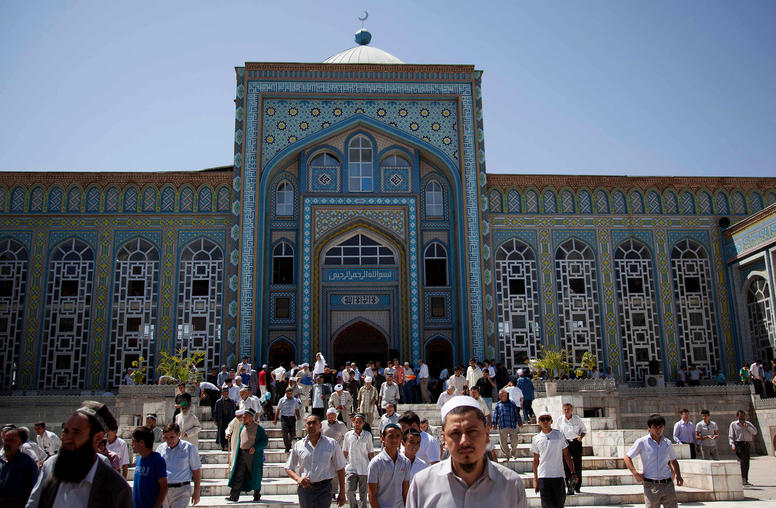
Engaging with Muslim Civil Society in Central Asia: Components, Approaches, and Opportunities
When Western policymakers and development practitioners turn their attention to Central Asia, they too often overlook Muslim civil society as a potential partner for addressing the region’s economic and social problems. This report, which is based on dozens of interviews with representatives of Muslim civil society organizations in Kazakhstan, Kyrgyzstan, Tajikistan, and Uzbekistan, is intended to help generate a much-needed conversation about Muslim civil society in Central Asia and how Western donors and practitioners can begin tapping their potential.
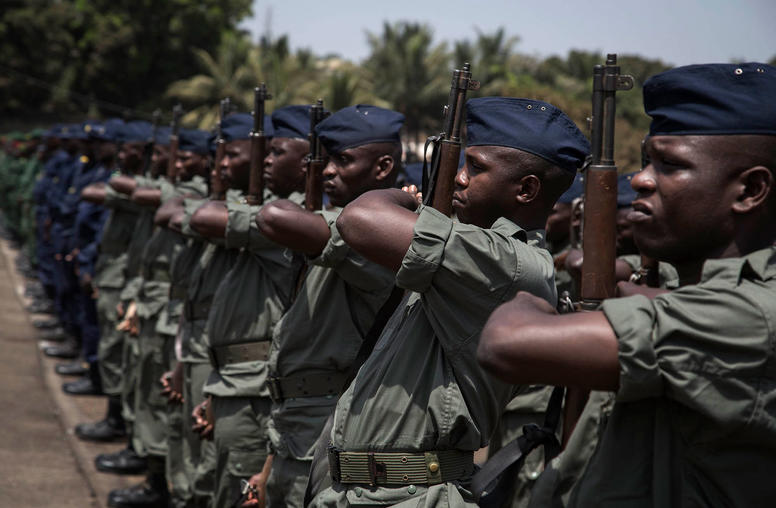
Guinea’s Lesson for Strengthening Democracy: Use ‘Peer Power’
As dozens of nations seek to strengthen democracy at this week’s White House summit, indicators for effective methods can be found in Guinea, one of five nations that this year suffered a coup by its military. An overarching lesson is for the United States and other more distant governments and institutions to recognize the greater efficacy of putting regional communities in the lead. For Guinea, this will mean supporting a stronger role by neighboring countries and the Economic Community of West African States (ECOWAS)—a 15 nation grouping that has shown real promise as a promoter of democracy.
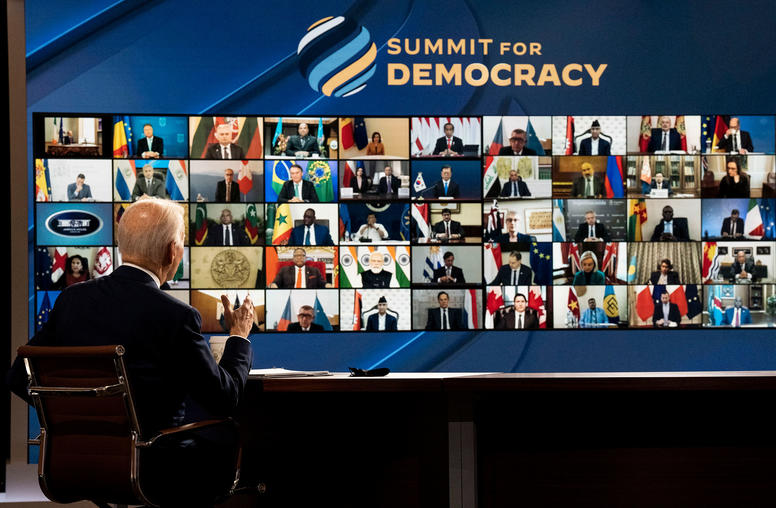
A Global Democratic Resurgence is the Best Path Toward Peace
The longstanding global decline in democratic governance has now reached its 15th consecutive year, with the number of liberal democracies falling from 41 to just 32 in the last decade alone. Consequently, authoritarian tendencies have crept into the spaces once held by democratic institutions, with increased government repression and exclusion fueling further instability and conflict.
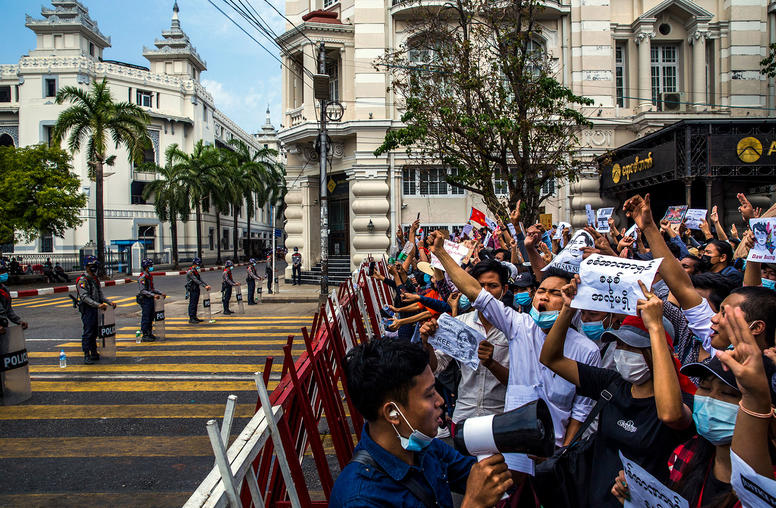
Myanmar Struggles to Reverse a Coup; Democracies Can Help
Few countries this year dramatize more powerfully the need for a global focus on strengthening democracy than Myanmar, now 10 months into a new chapter of military dictatorship and violence following its February 1 coup. Myanmar is a testament to the vulnerability of democracy when armed forces expect no repercussions for brutality and can rely on support from authoritarian governments which will arm, legitimize and finance them. As the United States and partners seek ways to boost democracy in this week’s White House summit, experts on Myanmar offered recommendations for policy.
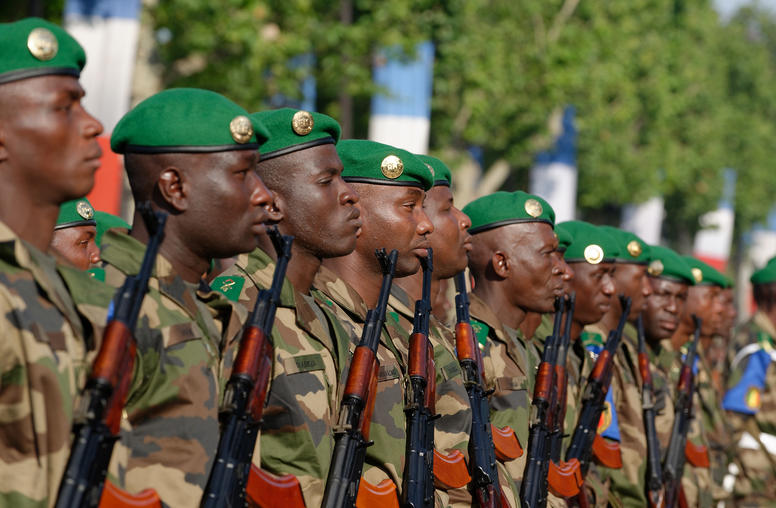
After Two Coups, Mali Needs Regional Support to Bolster Democracy
Amid a 15-year global democratic recession, the Biden administration is convening over a hundred nations this week to revitalize democracy. This comes at a critical juncture, as democracy’s defenders are reeling from the growing challenges posed by authoritarian foes. The West African country of Mali puts these challenges in stark relief, after the country experienced two coups in a year. Underlying the crisis of coups in Mali is a deeper crisis of state legitimacy, which has been exacerbated by Western security assistance overly focused on short-term counterterrorism gains.
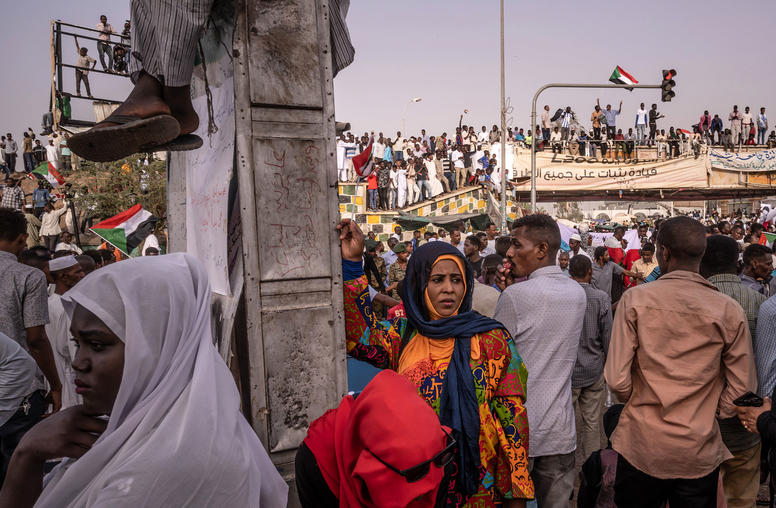
Putting Sudan’s Political Transition Back on Track
Sudan has been ruled by the military for 53 of the 66 years since it gained independence in 1955. On October 25, the military, in a familiar move, seized power throwing into question the political transition that would result in civilian rule. The civilian cabinet was dissolved, its leaders arrested and a state of emergency declared. Coup leader Gen. Abdel Fattah Burhan cited well-worn excuses to justify his actions. Ousted Prime Minister Abdalla Hamdok was later reinstated to lead a technocratic cabinet until elections scheduled for July 2023.

Joseph Sany on President Biden’s Democracy Summit
Amid a global democratic recession, USIP’s Joseph Sany says President Biden’s Summit for Democracy is an important “statement of solidarity,” but that “if [democracies] want to regain or strengthen their legitimacy,” they must deliver for their people, adding: “If you lose the citizens’ trust, you lose everything.”
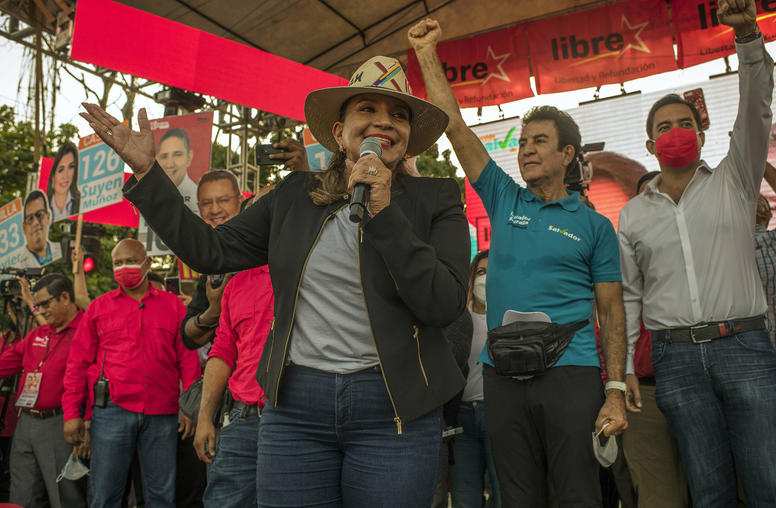
Amid Democratic Disillusionment, Can Honduras’ Historic Election Bring Change?
Hondurans made history on November 28, electing leftist Xiomara Castro as the country’s first woman president. In a country plagued by political instability and polarization, Hondurans also demonstrated how presidential power should be transferred in a democracy as Castro graciously received her conservative opponent, who then issued a statement calling for “reconciliation and unity.” .

Ante desilusión frente a la democracia ¿Pueden las históricas elecciones de Honduras traer el cambio?
Los hondureños hicieron historia el 28 de noviembre al elegir a la líder de izquierda Xiomara Castro como la primera presidenta en la historia del país. En un país plagado por inestabilidad política y polarización, los hondureños también demostraron cómo se debe transferir el poder presidencial en una democracia al recibir Castro gentilmente a su oponente conservador, quien luego emitió un comunicado pidiendo "reconciliación y unidad".
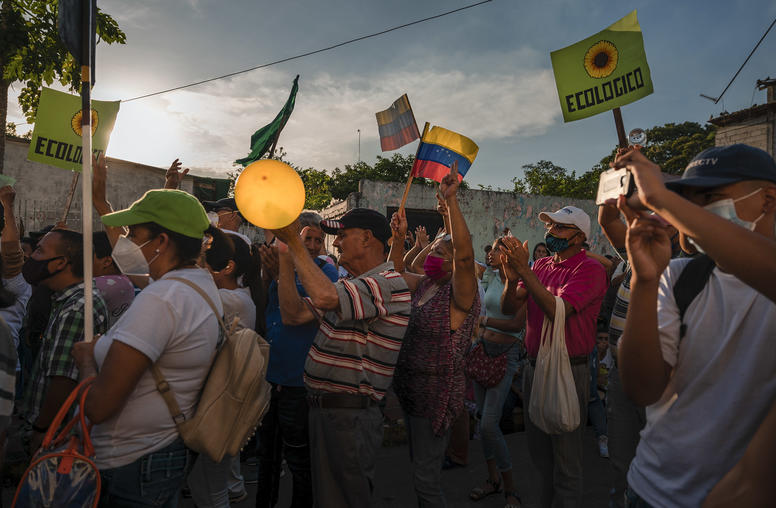
Many Venezuelans Choose a Flawed Election Over No Election
Venezuelans elected governors, mayors and local officials November 21 in a vote condemned by many as stacked hopelessly against the opposition or simply fraudulent. An increased turnout over elections last year appears to reflect many Venezuelans’ growing belief that they have gained little with voting boycotts. They believe participation in even a flawed election advances the concept of “re-institutionalization,” which aims to progressively reform the machinery of democracy after years in which it has been undermined by the ruling party. Advocates of this strategy say that restoring democracy must be a long game of incremental advances.